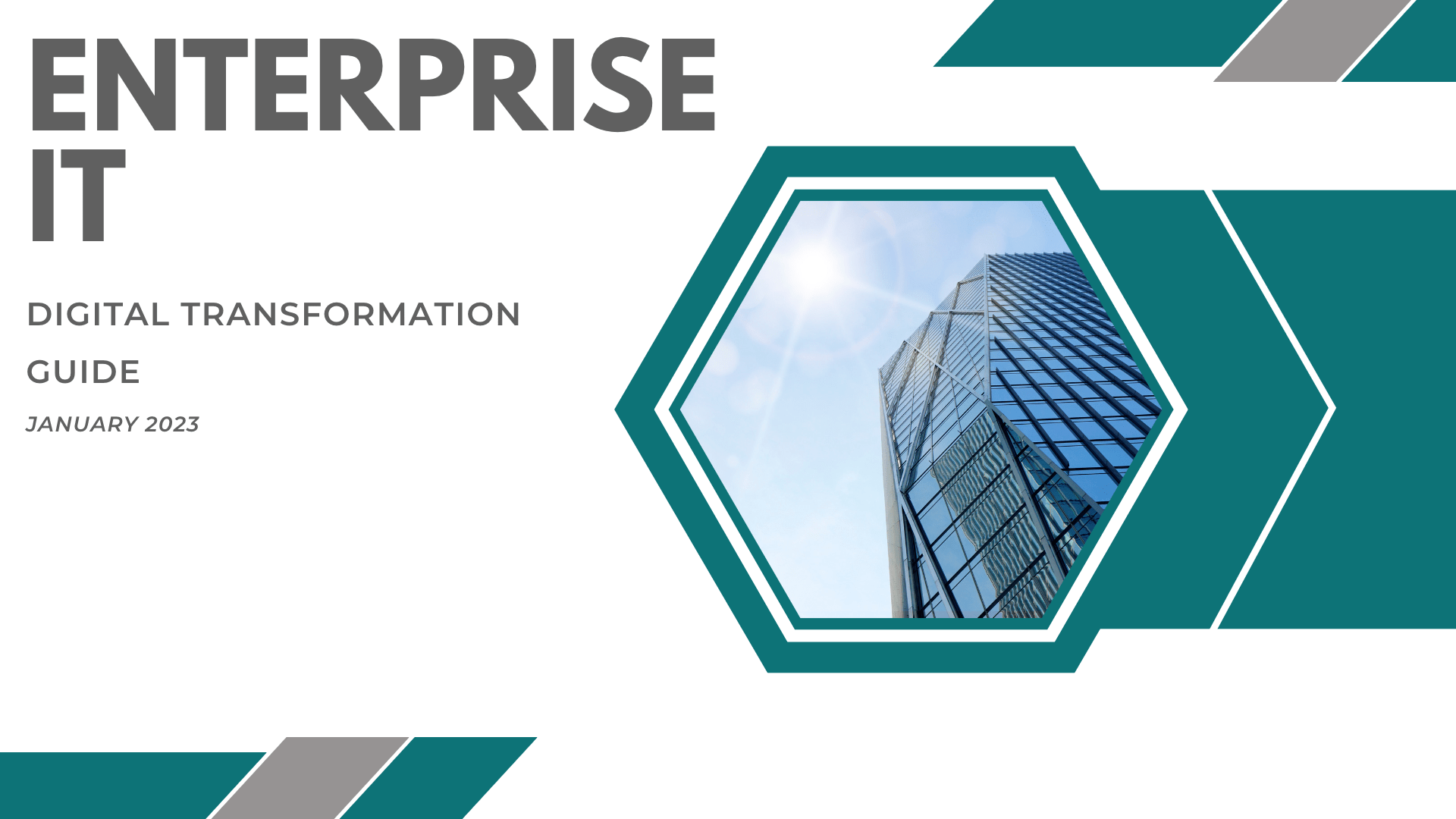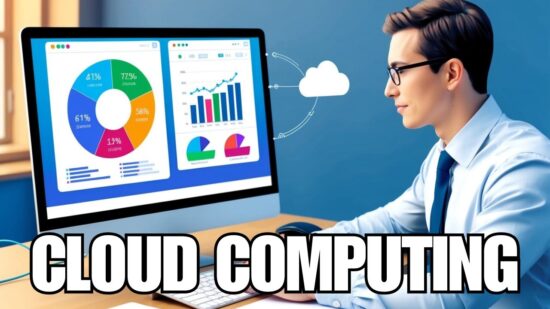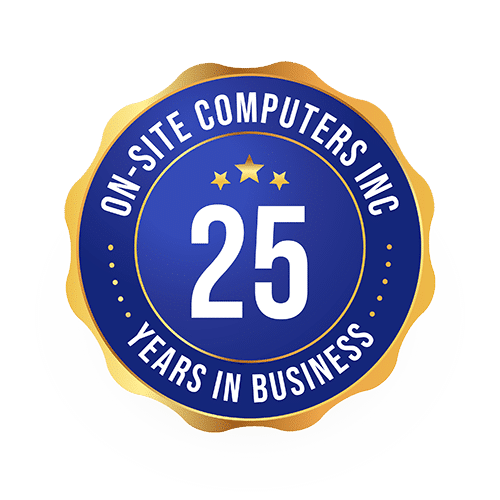Defining Enterprise IT: Your Key to Digital Transformation
Key Points
- Enterprise IT is the driving force behind businesses, providing a strong systems and services infrastructure for data storage and management.
- Its purpose is to help organizations manage their operations more efficiently while ensuring security for sensitive data.
- With the right strategy in place, enterprise IT can fuel businesses toward their goals with its networks, computers, applications, and data systems.
- Organizations are transitioning to cloud-based communications for improved service management, requiring IT departments to manage vendor relations and collaborate between business units.
- Cloud computing and artificial intelligence have revolutionized the enterprise IT space; by 2025, over half of enterprise IT spending will be devoted to cloud services.
More organizations are embracing new processes for improved service management. Cloud-based communications have surged, completely overhauling the technology landscape as organizations gain deeper insight into maximizing efficiency. As organizations transition to the cloud, IT departments are being tasked with more than just keeping technologies running. Instead, they must manage vendor relations and contract stipulations, collaborate between business units and wider functions, and tackle data integration challenges – all key components in maintaining a streamlined organizational structure amidst changing technology landscapes.
Enterprise IT is the driving force behind businesses and organizations, providing a strong infrastructure of systems, services, and personnel to ensure effective data storage and management.
What Is Enterprise IT?
Enterprise IT is the foundation of modern organizational success, helping to drive business objectives and meet operational requirements. With an ever-growing landscape of networks, computers, applications, and data management systems, enterprise IT equips organizations with all they need for today’s fast-paced digital world.
Enterprise IT strategies focus on optimizing core operations for maximum organizational success – whether through local hosting or cloud-based platforms – all while backed by budgets, policies, and support teams that keep everything running smoothly. No organization can hope to succeed without an effective enterprise IT system as the foundation of its operations.
With the right strategy, enterprise IT can fuel businesses toward their goals. It’s a complex landscape that requires proper navigation to bring together resources and technology; everyone must work together with the clarity of purpose for success. Critical business objectives are within reach when done properly, and each organization can chart its course forward.
The Evolution of Enterprise IT and New Technology
As technology advances and grows, so does the world of enterprise IT. From cloud computing to artificial intelligence, innovative solutions have changed how business is done and opened up new opportunities for success. The evolution that has taken place in recent years has enabled organizations to achieve their goals faster than ever before.
Cloud computing, for instance, has revolutionized the enterprise IT space. By allowing organizations to host their applications in the cloud, they can save time, money, and resources on managing their own servers. Artificial intelligence has also enabled more advanced data analysis and automated decision-making capabilities that weren’t possible before.
By 2025, Gartner predicts that over half of enterprise IT spending by organizations will be devoted to cloud infrastructure and services – a revolutionary shift from traditional enterprise technology. This investment in the future allows organizations to focus on more strategic initiatives instead of maintenance costs associated with legacy systems.
Enterprise IT is undergoing significant evolution, shifting towards service-based management and away from technology-centric frameworks. This brings several challenges that require sophisticated methodologies such as ITSM, Lean, and DevOps to overcome – but those who do will be well-positioned to succeed.
What Are the Current Challenges for Enterprise IT?
As technology continues to evolve, so too do the importance and implications of enterprise IT. Organizational success will depend heavily on a deep understanding of the complexities of the enterprise IT landscape, which will help inform and guide strategies for success.
Enterprise IT is up against a tough landscape of ever-evolving challenges, from security and compliance to modernization efforts. Organizations need effective solutions that address these concerns to succeed in the digital age — but how can they be attained? Employing cutting-edge technology, collaborating with external partners, and allocating sufficient resources are ways enterprises may overcome the obstacles standing before them on their journey toward success.
Today’s enterprise IT teams must cultivate a continuous learning and improvement culture that embraces change and encourages experimentation. This means seeking out the latest trends and technologies to stay ahead while taking full advantage of available resources. Embracing this culture will help enterprises to stay agile, innovative, and secure as they navigate a changing IT landscape.
It’s no surprise that managing these enterprise services can become quite complex. Thankfully, organizations can equip themselves with the tools and best practices to manage their IT resources successfully. Organizations can realize their true potential and reach their full business objectives with the right strategy.
Tailoring Enterprise IT Solutions for Maximum Business Impact
Organizations can ensure that their enterprise IT solutions are tailored to their specific needs by conducting an audit of their current system and mapping out a development plan. The audit should include gathering technical specs, current infrastructure, existing processes, and software usage. This allows organizations to clearly understand their existing requirements and areas that could use improvement or are inefficient.
The assessment stage should include an analysis of business strategies to identify new opportunities for automation or alignment with organizational objectives. The next step is to develop an enterprise IT roadmap that outlines the organization’s goals and objectives and a timeline for implementation. Organizations should utilize best practices when designing the roadmap, such as DevOps approaches or lean principles, to help streamline the process and ensure the successful deployment of the desired outcomes.
Companies can also leverage agile methods to test iterations quickly and validate results against expected targets. Organizations should also evaluate potential technology vendors to identify those offering solutions tailored to their specific needs. Careful evaluation of various suppliers should be conducted before deciding to ensure total satisfaction with the final product or service.
It’s no secret that one-size-fits-all IT solutions are a thing of the past. Success depends on organizations designing an enterprise IT strategy tailored to their individualized needs. If done right, it can be like unlocking the door to technological greatness – so don’t skimp when creating your key!

The Impact of Enterprise IT on Organizational Operations
Enterprise IT is the key to success in today’s rapidly changing world. It offers organizations cost reductions, enhanced service delivery, and exceptional customer experiences while also allowing them to smoothly scale technology as needed. Enterprise IT also provides insight into how services are utilized so businesses can proactively adapt their operations for maximum performance.
It has revolutionized the corporate landscape, enabling organizations to reach new heights of efficiency and effectiveness. Organizations can streamline processes like never before with seamless communication networks, powerful analytics tools, and automation capabilities, propelling them forward in their day-to-day operations.
Wrapping Up
Organizations must embrace the power of enterprise IT to remain competitive in today’s tech-driven world. From recognizing current challenges, understanding their implications for operations, and developing a plan for success – only then can businesses unlock the potential of technology and be on track to reach true greatness in this digital age!






